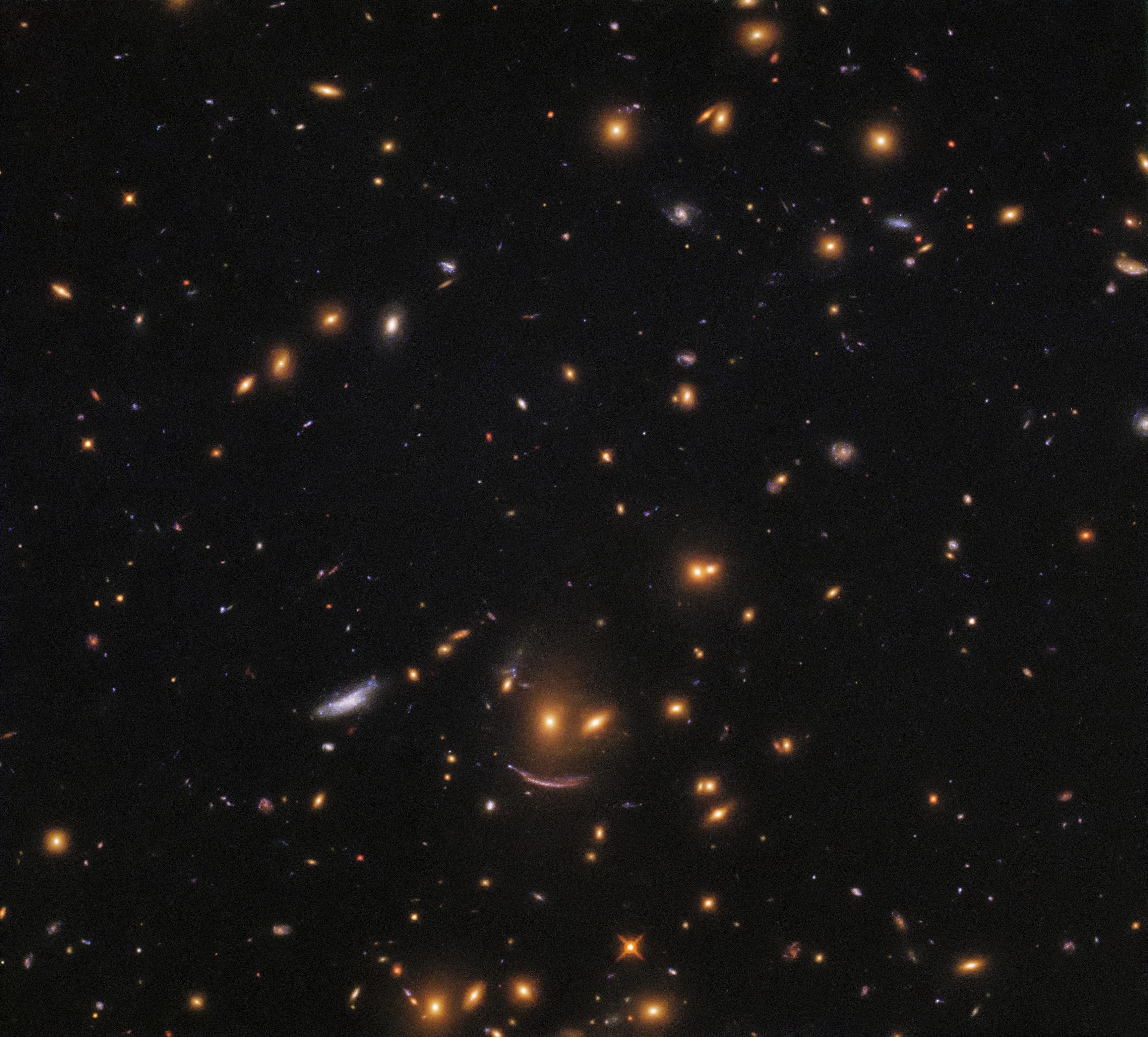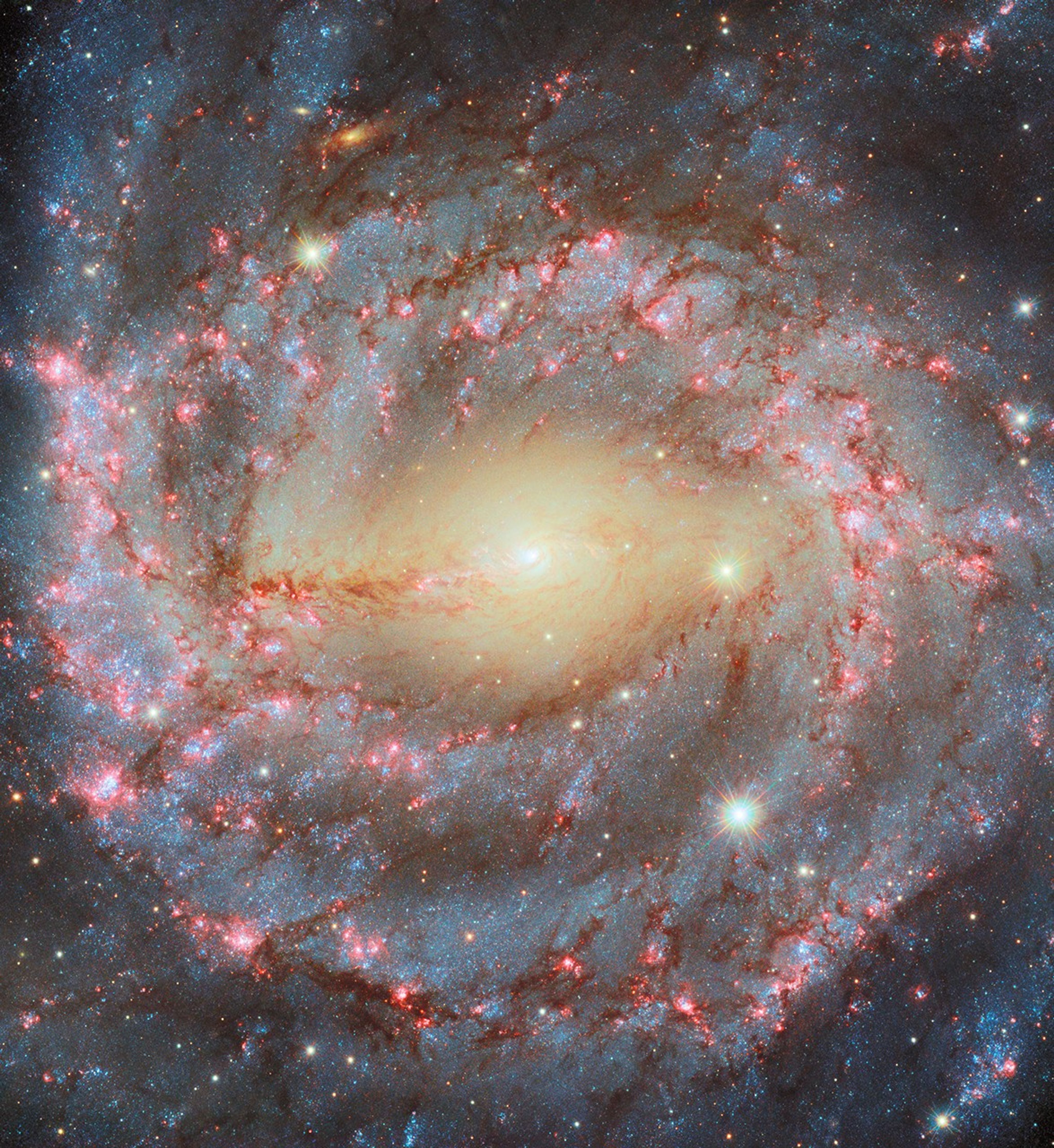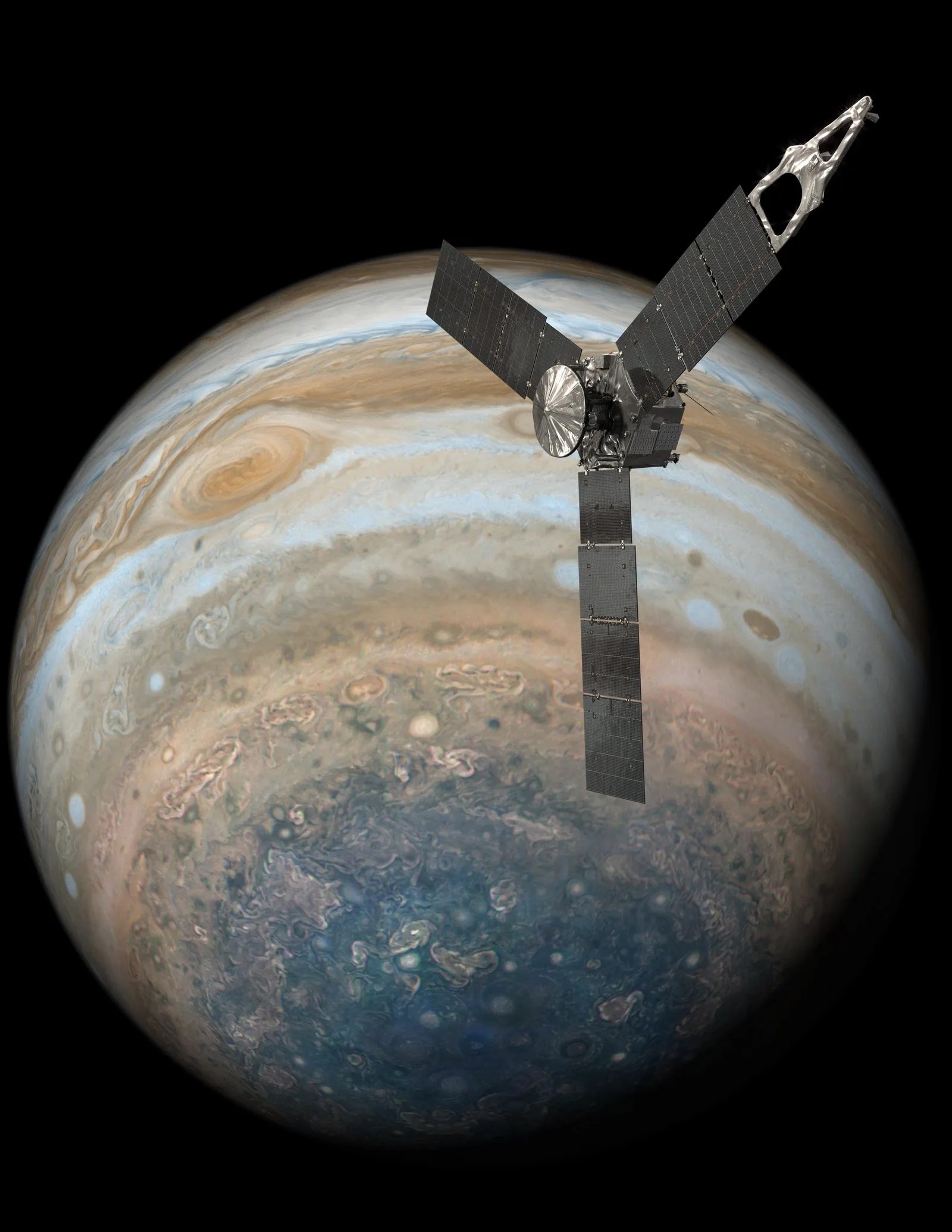2 min read

This image, taken with the NASA/ESA Hubble Space Telescope's Wide Field Camera 3 (WFC3), shows a patch of space filled with galaxies of all shapes, colors and sizes, many of which belong to the galaxy cluster SDSS J0952+3434.
Just below center is a formation of galaxies akin to a smiling face. Two yellow-hued blobs hang atop a sweeping arc of light. The lower, arc-shaped galaxy has the characteristic shape of a galaxy that has been gravitationally lensed — its light has passed near a massive object en route to us, causing it to become distorted and stretched out of shape.
Hubble captured this image in an effort to understand how new stars spring to life throughout the cosmos. WFC3 is able to view distant galaxies at an unprecedented resolution — high enough to locate and study regions of star formation within them.
Stars are born within giant clouds of gas. These massive clouds, or stellar nurseries, grow unstable and begin to collapse under gravity, becoming the seeds that will grow into new stars. By analyzing the luminosity, size and formation rate of different stellar nurseries, scientists hope to learn more about the processes that can lead to the formation of a newborn star. Studying nurseries within different galaxies will provide information about star formation at different points in time and space throughout the universe.
Text: European Space Agency (ESA)







